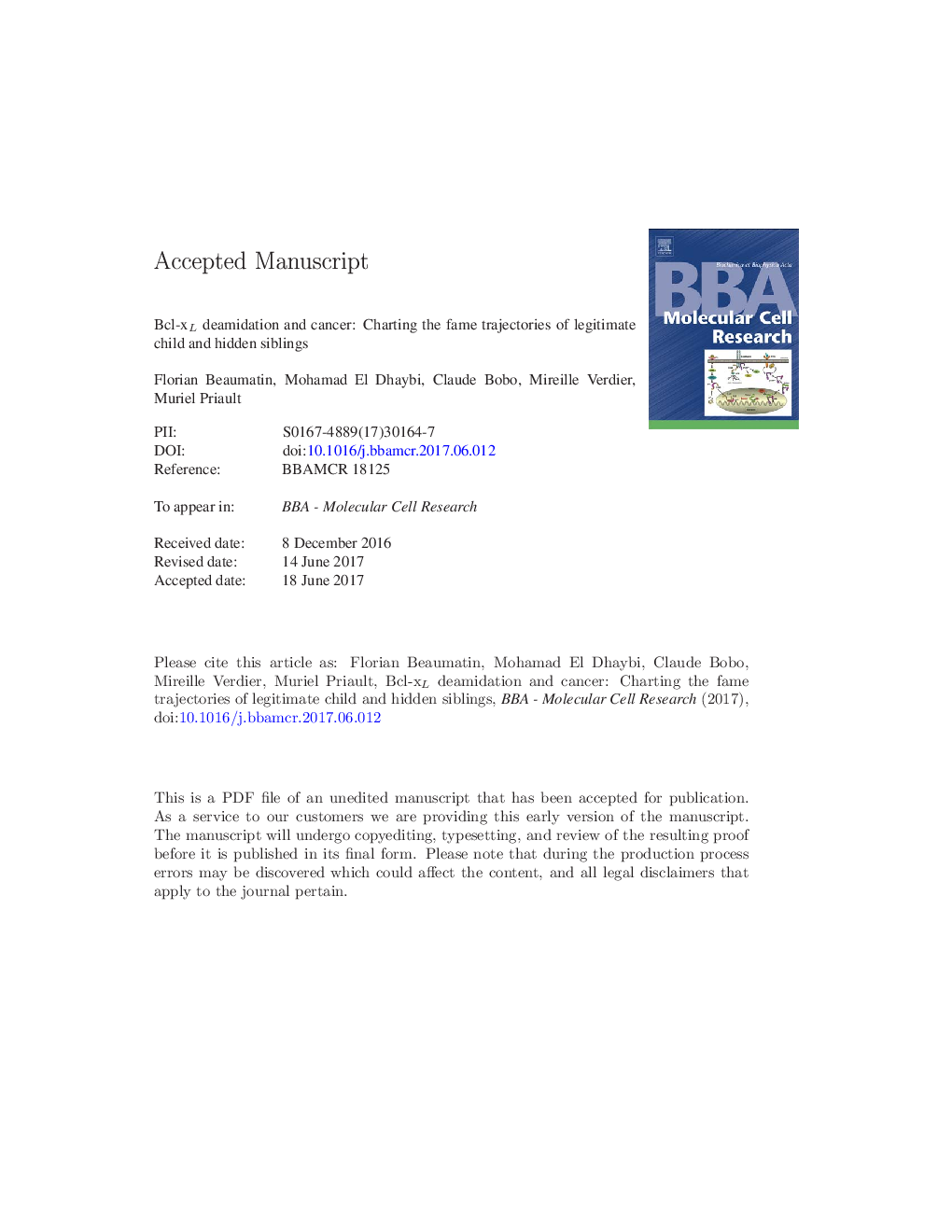| Article ID | Journal | Published Year | Pages | File Type |
|---|---|---|---|---|
| 5508815 | Biochimica et Biophysica Acta (BBA) - Molecular Cell Research | 2017 | 41 Pages |
Abstract
Bcl-2 family proteins control programmed cell death through a complex network of interactions within and outside of this family, that are modulated by post-translational modifications (PTM). Bcl-xL, an anti-apoptotic member of this family, is overexpressed in a number of cancers, plays an important role in tumorigenesis and is correlated with drug resistance. Bcl-xL is susceptible to a number of different PTMs. Here, we focus on deamidation. We will first provide an overview of protein deamidation. We will then review how the apoptotic and autophagic functions of Bcl-xL are modified by this PTM, and how this impacts on its oncogenic properties. Possible therapeutic outcomes will also be discussed. Finally, we will highlight how the specific case of Bcl-xL deamidation provides groundings to revisit some concepts related to protein deamidation in general.
Related Topics
Life Sciences
Biochemistry, Genetics and Molecular Biology
Biochemistry
Authors
Florian Beaumatin, Mohamad El Dhaybi, Claude Bobo, Mireille Verdier, Muriel Priault,
